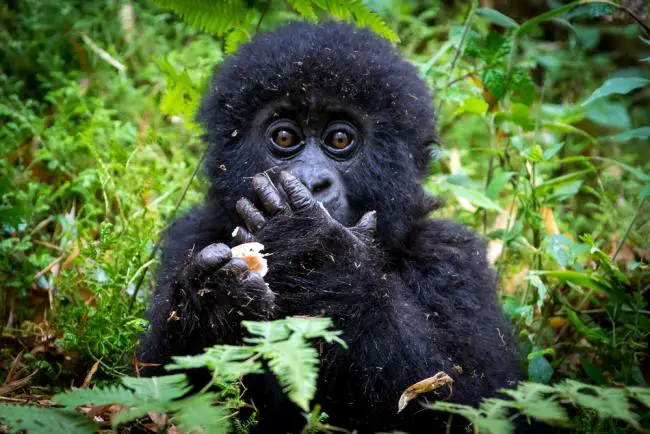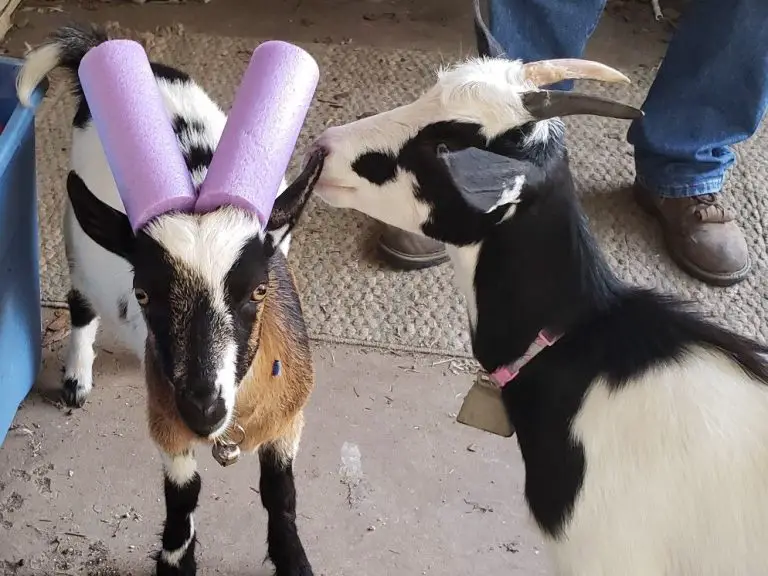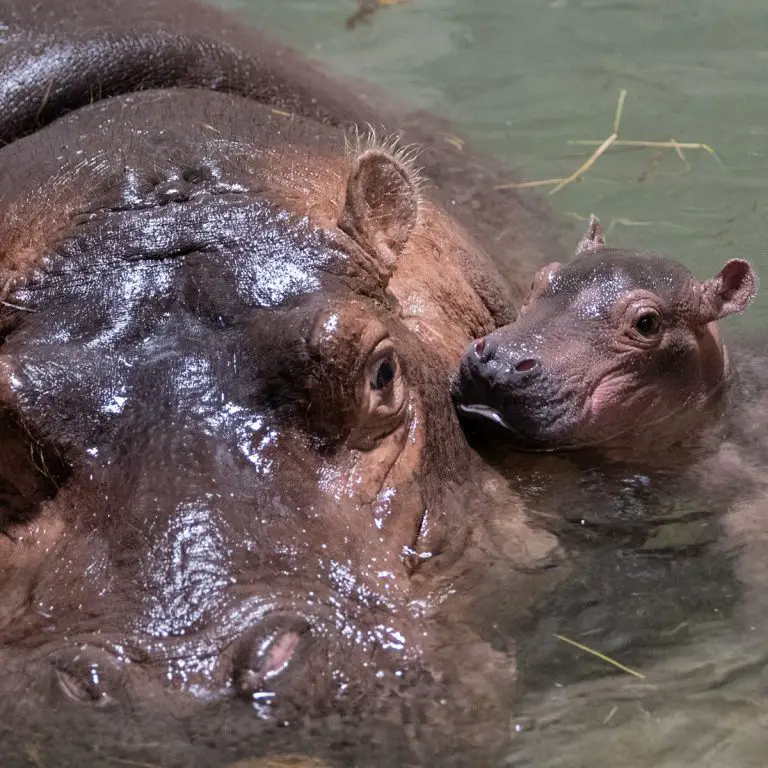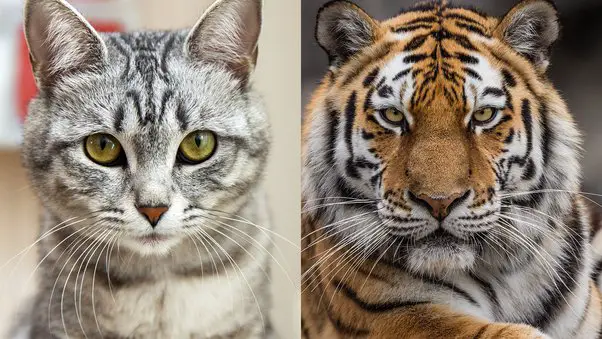Can Gorillas Be Pets?
Gorillas cannot be kept as pets due to their size, strength, and specific needs. However, there are 8 interesting facts about raising gorillas that are worth exploring.
The Legal Perspective
When considering the possibility of keeping gorillas as pets, it is crucial to understand the legal perspective surrounding this matter. International regulations on gorilla ownership play a significant role in determining the feasibility of having gorillas in domestic settings. Many countries have enacted strict laws that prohibit the possession of gorillas as pets. These regulations aim to protect endangered species and prevent the illegal wildlife trade. Additionally, there are national laws in various countries that specifically address gorilla ownership, outlining the requirements and restrictions involved. Violating these laws can result in serious consequences, including fines, imprisonment, and the confiscation of the gorilla. It is crucial to respect and abide by these legal frameworks to ensure the well-being and conservation of gorillas in their natural habitats.
Gorillas In The Wild Vs. Home
Comparing Natural Habitat and Societal Structures: Gorillas in the wild live in forested areas of Central Africa, primarily in tropical rainforests. They thrive in the lush vegetation and diverse wildlife that make up their natural habitat. In the wild, gorillas live in familial groups, led by a dominant male silverback, with a complex social structure.
Gorillas require large territories to forage, play, and interact with their social group. Their behavior is shaped by their natural environment as they adapt to various food sources, navigate through dense vegetation, and maintain their social bonds.
Differences in Captivity: In comparison, keeping gorillas as pets in a domestic environment poses significant challenges. Gorillas have specialized dietary needs that are difficult to meet in a home setting. The transition from the wild to captivity disrupts their natural behaviors and social dynamics.
Moreover, gorillas require a stimulating and enriching environment to keep them physically and mentally active, as they are highly intelligent creatures. In captivity, they may exhibit signs of depression, aggression, or frustration due to the lack of proper stimulation and social interaction.
Therefore, it is important to recognize that while gorillas are fascinating creatures, they are best left to their natural habitat and protected in their wild environments, rather than being kept as pets.
Note: This information is provided for educational purposes only. Gorillas are protected species and keeping them as pets is illegal in most countries.
Raising Gorillas: Intriguing Insights
Wondering if gorillas can be pets? Here are 8 interesting facts about raising gorillas that might surprise you!
Gorilla maturity and lifespan challenges:
Gorillas take an extended period to mature, with females reaching adulthood around the age of 10 and males around 15. They have an average lifespan of 35 to 40 years in the wild, whereas captivity can extend it up to 50 years.
Dietary requirements for a healthy gorilla:
Gorillas are herbivores, consuming a predominantly plant-based diet. Their meals consist of fruits, leaves, shoots, and pith, supplemented with small insects. A varied and nutritious diet is essential for their growth and overall well-being.
Interaction with gorillas: Safety and risks:
Interacting with gorillas requires caution. While they can exhibit some gentle behaviors, their strength and unpredictable nature can pose risks. It’s necessary to maintain distance, avoid eye contact, and follow expert guidance when encountering gorillas.
Space and enrichment needs for development:
Gorillas require significant space for proper development. They thrive best in large habitats that mirror their natural environment, providing climbing structures, hiding spots, and opportunities for mental stimulation. Enrichment activities, such as foraging and problem-solving, are vital for their mental and physical well-being.
Ethical Considerations
Implications on gorilla mental health: Keeping gorillas as pets can have serious implications on their mental health. Gorillas are highly social animals and require interaction with other gorillas to thrive. Keeping them in isolation can lead to loneliness, stress, and depression.
Conservation concerns: Raising gorillas as pets can have a detrimental impact on wild populations. Poaching and illegal trade for the exotic pet industry can contribute to the decline of gorilla populations in their natural habitats. It is crucial to prioritize conservation efforts and preserve the natural habitats of these magnificent creatures.
Ethical dilemmas of exotic animals as pets: Owning gorillas as pets raises various ethical dilemmas. Gorillas are intelligent and sentient beings, and keeping them confined for human entertainment goes against their natural instincts and welfare. It is essential to critically evaluate the ethical implications and consider the well-being of these animals when considering them as pets.

Gorilla Health And Wellness
Gorillas are fascinating creatures to consider as pets, but their health and well-being require careful attention. Here are some interesting facts about common health issues, veterinary care costs and complexities, as well as emotional well-being and stress signs in captive gorillas:
| Common Health Issues in Captive Gorillas | • Respiratory infections and gastrointestinal disorders are common in captive gorillas due to stress and exposure to different environments. • Heart diseases and high blood pressure can also affect gorillas, especially as they age. |
|---|---|
| Veterinary Care Costs and Complexities | • The veterinary care costs for gorillas can be steep, considering their specialized needs and the expertise required for treatment and regular check-ups. • Gorillas may require specialized equipment and facilities, which further adds to the complexities and costs of their care. |
| Emotional Well-being and Stress Signs | • Gorillas are highly intelligent and social animals, and their emotional well-being is crucial for their overall health. Isolation and lack of mental stimulation can lead to stress and behavioral issues. • Signs of stress in gorillas include self-harm, excessive grooming, and aggression towards others or themselves. |
Ultimately, while owning a gorilla may seem enticing, it’s crucial to consider the extensive care requirements, potential health issues, and emotional well-being of these magnificent creatures. Responsible stewardship is imperative to ensure their welfare.
Understanding Bonding And Socialization
Can Gorillas Be Pets? 8 Interesting Facts About Raising Gorillas!
Gorillas have a complex social structure in the wild. They live in groups called troops, usually consisting of one dominant male, several females, and their offspring. This social structure plays a crucial role in their overall well-being and development. When gorillas are raised as pets, it is essential to understand the importance of bonding and socialization for their psychological and emotional needs.
The attachment and interaction with human caregivers are vital for gorillas raised in captivity. These interactions help them develop a sense of trust and form a bond with their caregivers. By providing the necessary social stimulation, caregivers can help gorillas thrive.
Pitfalls of social isolation for gorillas should not be underestimated. Without proper interaction with other gorillas, they may experience loneliness, stress, and abnormal behaviors. Gorillas are highly intelligent creatures with emotional needs that can only be fulfilled through social interactions within their own species.
The Cost Of Raising Gorillas
The cost of raising gorillas can be significant due to various initial acquisition expenses, ongoing care, and unforeseen costs. When acquiring a gorilla as a pet, one must consider factors such as permits, licenses, and legal requirements, which may add to the overall cost. Additionally, the process of feeding, housing, and providing enrichment for gorillas can be expensive. Gorillas have specific dietary needs, requiring a range of fruits, vegetables, and supplements to ensure their health and well-being. Housing for gorillas also needs careful consideration, as it should be spacious, secure, and simulate their natural habitat. Moreover, providing enrichment activities, such as toys and puzzles, is essential to prevent boredom and stimulate their mental health. Furthermore, unforeseen costs can arise due to emergencies, including veterinary care and unexpected long-term care needs. It is crucial to have adequate financial resources to cater to any unforeseen circumstances that may arise throughout the gorilla’s life.
| Initial acquisition expenses | Permits |
|---|---|
| Licenses | |
| Legal requirements | |
| Ongoing care | Feeding |
| Housing | |
| Enrichment | |
| Unforeseen costs | Emergencies |
| Long-term care |
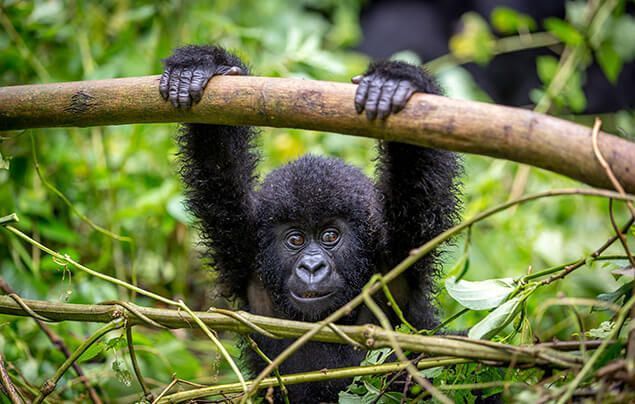
Alternatives To Gorilla Pet Ownership
Considering the high level of intelligence and specialized care required, it is not suitable nor legal to keep gorillas as pets. However, there are several alternatives to gorilla pet ownership that can support gorilla conservation efforts.
One way to contribute is by volunteering at sanctuaries and zoos that provide a safe and nurturing environment for gorillas. This hands-on experience allows individuals to learn about gorilla behavior and contribute to their well-being.
Another important way to support gorilla conservation initiatives is by educating others about the importance of gorilla protection efforts. By raising awareness about the threats facing gorillas, such as habitat loss and poaching, individuals can inspire others to take action.
Overall, while gorillas cannot be kept as pets, there are various ways to get involved and make a positive impact on their conservation. Whether through volunteering or spreading awareness, everyone can contribute to the well-being of these magnificent animals.
Frequently Asked Questions On Can Gorillas Be Pets? 8 Interesting Facts About Raising Gorillas!
Can You Raise A Gorilla As A Pet?
No, it is not possible to raise a gorilla as a pet. Gorillas are wild animals and keeping them as pets is illegal and unethical. They require specialized care, large habitats, and extensive social interactions, which cannot be provided in a domestic setting.
What Are 10 Interesting Facts About Gorillas?
Here are 10 interesting facts about gorillas: 1. Gorillas are the largest primates on earth. 2. They are predominantly herbivorous, with a diet consisting mainly of leaves and fruits. 3. Gorillas live in close-knit family groups led by a dominant silverback male.
4. They have a remarkable level of intelligence and can learn sign language. 5. Gorillas are known for their impressive strength, with males weighing up to 400 pounds. 6. Their DNA is highly similar to humans, sharing about 98 percent of our genetic code.
7. Gorillas are mostly found in the forests of central Africa. 8. They use a variety of vocalizations to communicate with one another. 9. Gorillas are facing threats from habitat loss and poaching. 10. Conservation efforts are being made to protect these endangered animals.
What Do Gorillas Eat Kids?
Gorillas do not eat kids. Gorillas are herbivores and mainly eat leaves, stems, fruits, and shoots.
How Much Can A Gorilla Lift?
A gorilla can lift around 2,000 to 4,000 pounds.
Conclusion
While gorillas may seem fascinating and awe-inspiring creatures, they are not suitable pets. Raising gorillas requires specialized knowledge, resources, and permits, as well as a dedication to their well-being and conservation. Additionally, their natural habitat provides them with the best environment for their physical and mental health.
So, it is important to appreciate and support gorilla conservation efforts instead of considering them as pets.

